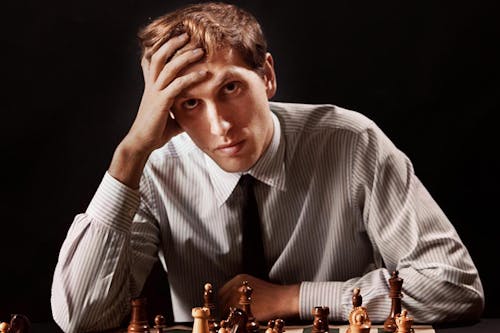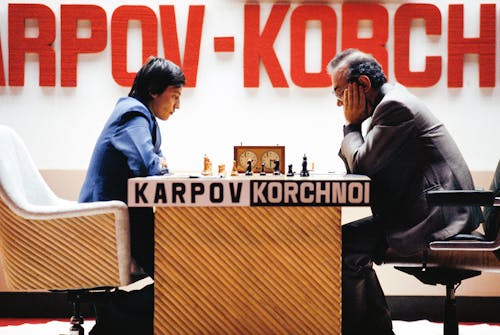Are you sure you want to delete your account?
(This will permanently delete all of your data - purchases, game scores, ratings, etc)
Change your username
Your current username is: guest
Change your account email address
Your current account email is:
Redeem your Fampay code here!
Use your Fampay code to get access to the Play Magnus Plus Membership!
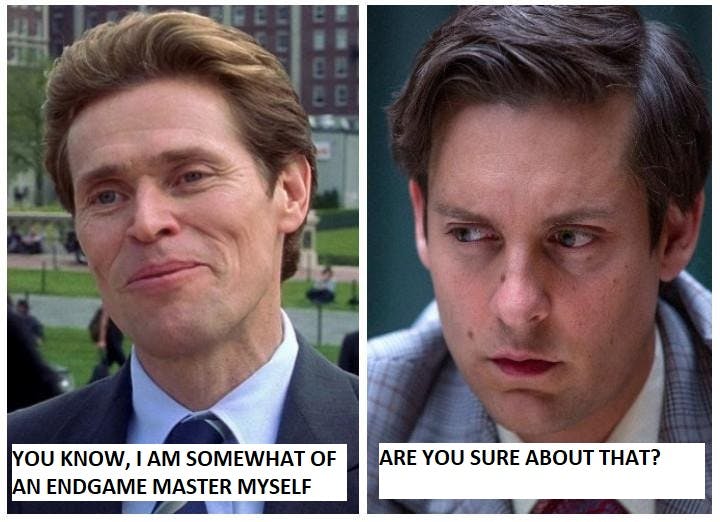
What Should You Study More: Opening vs. Endgame
One of the evergreen and hotly debated topics in chess is whether you should pay more attention to studying the opening or the endgame.
Over the last few decades, the late IM Mark Dvoretsky and other proponents of studying the endgame have made a leap forward in terms of changing public opinion on this topic. Nowadays, if you ask a dedicated chess fan what method is preferable, he might wink painfully and blurt out: “Yes, I know that endgames are more beneficial for your chess development in the long run!”. And having said that, he will run away from you, not waiting for other provocative questions, and purchase another online opening course or opening book.
Numbers don’t lie: if you check out any chess bookstore, you will realize that books on openings are still vastly superior to endgame books both in terms of quantity and the number of copies sold. People are still obsessed with openings!
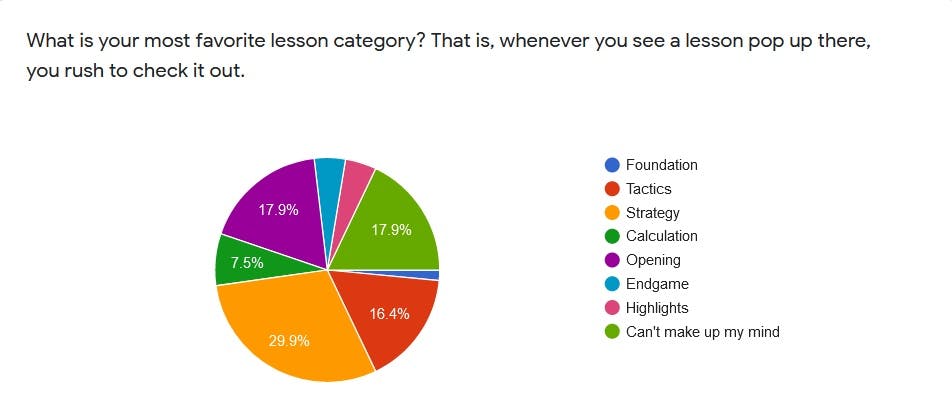
In 2020, we conducted a survey among Magnus Trainer users. One of the questions was about their preferences when it comes to lessons. Somewhat surprisingly for me, “Strategy” turned out to be a clear winner with 29.9%. The second and third places were shared by “Openings” and “Can’t make up my mind” with 17.9% each. “Endgame” shared the last place with “Highlights”, scoring a meager 4.5% each. So, is the least tasty food the best for you?
Now let’s briefly go over the arguments for each side and decide whether they look convincing enough.
PRO OPENING
“It feels nice to get an edge and a comfortable position out of the opening; in contrast, if you play the opening badly, you might lose quickly and have no chance to demonstrate your endgame skills at all” – valid. We have all seen such knockouts, even at the very top level. No one wants to feel like a punching bag, getting blown off the board in 15 moves or so. And winning an excellent game and saving quite some time and energy is much appreciated.
“That’s what the top players are mainly focused on, so everyone should adopt this approach” – an argument from authority. In this situation, it is a manipulation made possible by the fact that many people don’t understand that it makes no sense for a relatively weak player to copy the training routine of a super GM. At each level, different skills should be acquired, and the workload should be different. Mr. Olympia and an office worker who hits the gym two times a week for an hour should not have the same training program.
“Knowing openings is helpful for being a commentator, author or second” – true. I recall one eminent Grandmaster settling his scores by comparing the careers of two fellow strong Grandmasters. At some point, he venomously stated that the first GM, who was more of an endgame specialist, basically became of no interest to the chess community after falling off his rating peak. The second guy, who was portrayed as a case of success, joined a team of a more promising Grandmaster. Hence the conclusion was that opening knowledge is more valuable than endgame knowledge. Still, this narrative applies to a tiny sample of professional players and is not something a chess improver should be concerned about.
PRO ENDGAME
“Unlike opening theory, endgame theory is rarely revised, so it is more efficient to study it” – partially valid. If you review old endgame books carefully enough, you may notice that they are riddled with mistakes. Indeed, for positions with seven pieces on the board or fewer, we currently know the outcome of the game for sure if both sides play perfectly. The evaluations will NEVER change. But this wasn’t the case 20 years ago, not to mention older sources of information. Also, for many other popular endgames, most current evaluations are likely to stand the test of time. Nevertheless, there is still room for improvement. We are not omniscient when it comes to the endgame and not even close to being so.
“Most people play the endgame badly, so if you invest some time into studying it, your results are likely to improve drastically” – true for people who do play the endgame relatively badly. In the “develop your strengths vs. eliminate your weaknesses” argument, I am a big believer that you should focus on your strengths but also not forget to make “quick and dirty” fixes when it comes to glaring holes in your preparation. Let’s take an extreme example. If you have never studied openings and don’t know your lines for at least 5-8 moves, you will hugely benefit from learning this within a day. Or, endgame-wise, if you don’t know how to give basic mates, such as king and queen vs. king and king and rook vs. king, you will increase your rating tremendously if you master these techniques, spending a tiny amount of time compared to how much you generally allocate to chess. The same principle applies to more sophisticated concepts.
“Endgame theory doesn’t require as much memorization as opening theory” – partially valid. Endgame theory is also quite extensive, and even top GMs regularly forget what they have learned earlier. For example, at the training sessions of the Russian Olympic chess teams, they often practice rook and bishop vs. rook and rook and knight vs. rook endgames that are prevalent in modern chess. Guess what? People still make blunders when these endgames occur in tournament games!
This is something that really pisses me off in Dvoretsky’s “Endgame Manual”. Typically, for each endgame type, the author says there are just a few positions you should know by heart and assumes that they are easy to memorize once and forever. Well, alas, for most of us, it is hard to remember a few hundred chess positions and what exactly to do in them, even though I must agree that this is a modest amount of work as compared to the chunks of opening information stored by the minds of top GMs.
Also, when Dvoretsky sadistically bashes players in the “Tragicomedies” section for allegedly being lazy and not studying this or that endgame, I shake my head, realizing that they have almost certainly looked at this endgame at some point…but forgotten the conclusions! Our memories are not perfect. Also, mistakes happen, particularly when you are low on time and under pressure.
“By studying endgames, one understands better the abilities of each chess piece and learns how they can cooperate efficiently with each other” – true. This is the main reason why Jose Raul Capablanca advocated that one should start studying chess from the endgame.
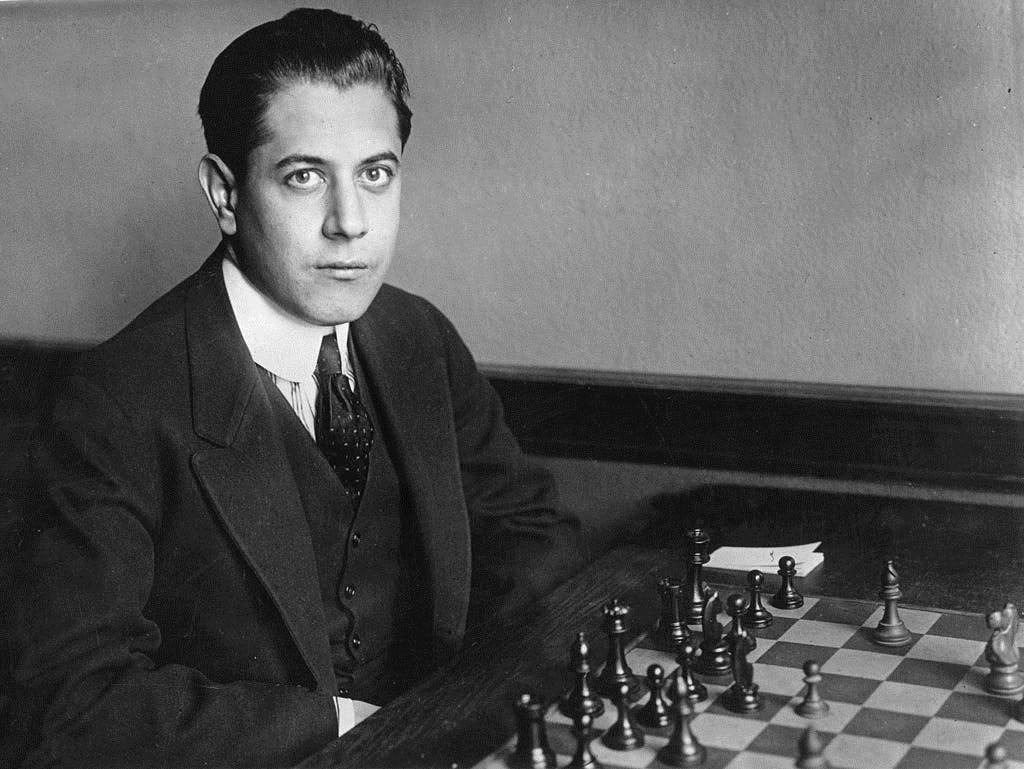
If you neglect the endgame, remember that Capablanca is watching!
The list is by no means exhaustive, but we have to cut it at some point. Anyway, who won?
A few years ago, I was clearly on the “Endgame” team. Firstly, the arguments above seemed to tip the balance in endgame’s favor. Secondly, I have met people rated Expert or below who knew sophisticated long lines and were helpless out of the opening, as well as experienced masters who could get away with playing all sorts of troll moves in the opening and outsmarting their opponents later on. Thirdly, reading chess books, I have often seen chess players state that studying the endgame took their playing strength to a whole new level. For instance, if there was one thing you were to take away from GM Jonathan Hawkins’ “Amateur to IM”, it is precisely the fact that focusing on the endgame was the main reason why he was able to progress from a club player to an IM. And I have never seen anyone claim something like: “I sat and studied openings all day, and then I became a GM all of a sudden!”
These days, my view on the subject is somewhat more balanced. I believe it makes sense to treat each person individually and to prescribe adequate “medicine” based on the symptoms that can be found by analyzing the person’s games. Here are some examples:
· If you can’t make it out of the opening or often leave it with a position that is already beyond salvation, then you indeed should consider working on your opening repertoire.
· If you get an excellent position out of the opening but have no clue what to do next, you should focus more on typical middlegame plans and positional play in general. Also, you might want to check if the opening you play suits your style at all.
· If you get a good position and have no obvious trouble navigating it but somehow can’t convert your advantage or lose to unforeseen tactics from the opponent, then you should focus on dynamics & tactics.
· If you often draw winning or better endgames and lose drawish/slightly inferior ones, then probably the endgame knowledge & technique need improvement.
Then, as you become more experienced and stronger, the training priorities change. The cycle goes on and on.
Luckily enough, our chess apps cover all facets of the game! If you wish to improve in chess, you may as well see what the World Chess Champion and his team of world-class experts have in store for you.
